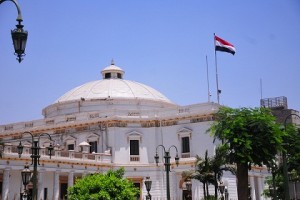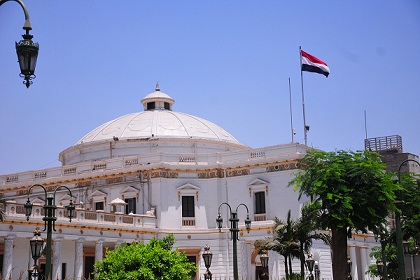
(DNE / FILE PHOTO / Hassan Ibrahim)
The Supreme Electoral Commission (SEC) announced Saturday it has accepted the applications of five international organisations and 63 local organisations to monitor the upcoming House of Representative elections beginning in March.
In a statement, the SEC said the deadline for applications’ submission ended on 20 January, with applications received already reviewed, reported state-run news agency MENA.
However, the commission reported they are still receiving applications from international non-civil society bodies.
The Egyptian Ministry of Foreign Affairs stated on Sunday that the African Union (AU) has expressed its willingness to send a mission to monitor the upcoming elections. The mission is expected to consist of 50 to 60 members, selected by the electoral management and civil society organisations working with the AU.
The AU sent a delegation to monitor Egypt’s May 2014 presidential election, headed by the former prime minister of Mauritania, Mohamed Lamine Ould Guig.
The SEC is now preparing a code of conduct for the observing organisations to follow, including regarding the collection of data during the process.
To participate in electoral observation, NGOs were required to obtain a certificate of validity issued by the Ministry of Social Solidarity, or affiliated bodies in local communities. These would have approved the legal status of the organisation, with this then to be submitted to the SEC.
Walaa Gad from the Maat Foundation for Peace Development and Human Rights told Daily News Egypt that they submitted applications for 7,000 individuals to be approved observers at the election. However, owing to the costs of doing so, they will be unable to only support the work of more than two to three thousand, though they will try and work in cooperation with volunteers.
Gad said that overall the commission was fairly supportive to work with. However, the majority of the problems were organisational, and the administrative capacity of the commission has been lacking in coordinating with the ministry.
The Maat Foundation will cooperate with the Global Network for Rights and Development (GNRD) and the International Institute for Peace, Justice and Human Rights (IIPJHR).
Earlier in January, the commission revealed the long-awaited dates for the parliamentary elections, the third pillar of the transitional political roadmap declared by the interim government in 2014. The first phase of votes will begin on 21 March and the second phase will take place on 25 April.
The AU’s final report of the May 2014 presidential election in Egypt gave a mixed analysis of the election process. They observed that “the conduct and management of the poll on the election days were generally professional and effective”. They added, however, that there was a ‘limited space’ for campaigning owing to a ‘tense’ political and security environment. They also commended the participation of women in the vote (43.18%).
However, they noted that civil society organisations had a limited role in facilitating the process, especially regarding voter education. The AU’s report also called for a repeal of the protest law and a better provision of civic and voting education to the public in order to enhance the democratic value of the poll.


